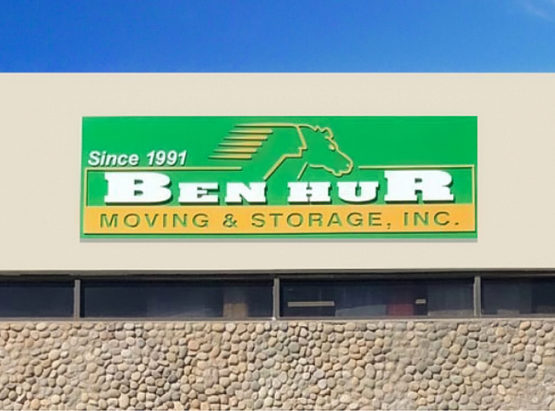
What to Look for Before Hiring a Mover
Updated: May 4, 2022
Moving can be a daunting task! Not only do you have to coordinate leases, mortgages, showings, and dates, but you’ll also have to pack up all your belongings and take them to your new place - usually in a small window of time. You might have thought about hiring a moving company, but how do you know what to look for? We’ve created this handy-dandy guide to help you pick the right movers to trust with all your possessions - from your prized family heirlooms right down to that old box of “stuff” that’s been collecting dust in your garage.
Searching for the right company for the job doesn’t have to be a headache. It can be a huge relief when you find the perfect movers for your family! Here’s a comprehensive list of criteria you should consider when hiring a moving company, so you can get back to planning more important things than throwing your back out on moving day!
1. Licensing and Insurance
The moving company must be fully licensed and insured. This checklist item is so important that if a company cannot provide proof of their licensing and insurance, they should be automatically disqualified. With an unlicensed and uninsured outfit, you are perilously without recourse if your possessions are lost, stolen, or damaged while being moved.

Any mover worth considering will offer basic item protection, also known as Alternative Level Liability. This is a minimum standard of protection that offers no more than 60 cents per pound per article, under the liability of your mover. For example, if your mover lost or damaged a 10-pound stereo component valued at $1,000, you would receive $6.00 in compensation (60 cents x 10 pounds).

1. Licensing and Insurance
The moving company must be fully licensed and insured. This checklist item is so important that if a company cannot provide proof of their licensing and insurance, they should be automatically disqualified. With an unlicensed and uninsured outfit, you are perilously without recourse if your possessions are lost, stolen, or damaged while being moved.
Any mover worth considering will offer basic item protection, also known as Alternative Level Liability. This is a minimum standard of protection that offers no more than 60 cents per pound per article, under the liability of your mover. For example, if your mover lost or damaged a 10-pound stereo component valued at $1,000, you would receive $6.00 in compensation (60 cents x 10 pounds).
Although Alternative Level Liability is free, some movers may choose to offer Full Value Protection, which would pay to replace or restore damaged items fully, but often incurs a much larger added charge. Reputable moving companies may also recommend third-party policies instead. The FMCSA has a full definition of the levels of item coverage on their website for an easier understanding of item insurance.
Movers are required to have much more than basic auto policies on trucks and basic moving protection - including state, local, and interstate certification and registration. The US Department of Transportation maintains a publicly accessible database that allows you to check the status of a moving company and any potential issues they’ve had investigated by the USDOT. Although government resources can be utilized to verify if a moving company is licensed, any reputable moving company should be fully transparent about their licensure and will usually list their status and ID numbers right on their website!
...any reputable moving company should be fully transparent about their licensure and will usually list their status and ID numbers right on their website!
2. A Good Fit for Your Needs
If your potential moving company checks all the basic licensing and insurance boxes, it’s then important to learn whether they offer the moving services you’re specifically looking for. The first consideration should be whether the company can move you to your new residence. High-quality movers should have information available upfront on whether they can move you locally, long-distance, or even out of state.

Many national moving chains offer long-distance and out-of-state moves but often charge higher prices. Independent movers who are fully licensed and offer long-distance services often have more tenured management and staff and can provide a better moving experience, often at a better price.
You should also consider the level of service needed in moving your belongings. Generally, there are two types of moving services offered: self-packing and full service. HomeAdvisor lists the main differences between “self-packing” and “full service” movers here, but generally, they are exactly what you would expect from their name. The cost of the move is usually what we tend to think about first, which will lead some to the idea that packing everything and letting a company load and move will save money. While it may cost less upfront, self-packing often incurs a much larger time and effort commitment from yourself and your family. Most movers that only offer this level of service will not provide insurance or guarantee the safety of your items. A reputable and professional moving service should allow you to delegate almost all the packing, loading, moving, unloading, and unpacking to them, if you choose. They should also provide you with resources and guides to pack your belongings safely and properly if you choose to take on some of the work yourself. Your potential moving professionals need to also be knowledgeable in the moving and care of appliances and be able to advise you on how and when to contact service professionals regarding the preparation of your appliances before moving.

3. Good Reviews
So, the company you are considering is transparent about their licensing and insurance and offers all the services and resources you need for your move, but does anyone recommend them and validate the quality of the service they offer?

To ensure you are picking the right movers for your job, the company should have positive reviews. Quality and quantity of reviews are both important in this case, especially with online reviews. A company should have many positive reviews across a plethora of online platforms, such as Yelp, Google Reviews, and HomeAdvisor. HomeAdvisor even offers awards to businesses based on amounts of verified reviews, validated insurance, licensing, and lack of negative reviews. The criteria for specific awards can be found here, and a company that holds these should move to the top of your list!
Most good reviews should also offer genuine and in-depth insight into the customer’s experience. High numbers of reviews with little to no feedback or generic language may raise alarms about the legitimacy of the reviews and/or business. Movers who are confident in their clientele’s reviews will often post links directly to the previously mentioned third-party tools, which should boost your confidence in them as businesses cannot pay to alter or remove these reviews in any way.
4. Established, Locally-Owned, and Reputable
Piggybacking off the requirement of good reviews is the necessity for your movers to be a well-established and reputable business and locally owned when possible. Some businesses get it right, right away, however, to be sure you are getting professionals that have a proven track record of success, the amount of time they've been providing service should be considered. Changes in owners, management, and employees can occur over time and lead to variable outcomes, so businesses that have received consistently good reviews over 5-10 years are much more likely to deliver the quality service you need. Companies that have had management and employees stay for that amount of time also speak to the reliability, expertise, and commitment to delivering both an excellent working environment and customer service.
If possible, your movers should be locally owned. The consistency of staff, owners, and a commitment to the reputation of the business is a much easier item to verify with locally owned companies. Not only that but the company “name switch” tactic can be avoided when doing business locally. According to moving.com, companies can avoid being rated by the Better Business Bureau by doing business under a variety of different names. Your potential movers should have a local business address, be easy to contact, and do all official communication with you under their company name (like email address domain and the title used when answering your phone call).

A company should have many positive reviews across a plethora of online platforms, such as Yelp, Google Reviews, and HomeAdvisor.

5. Pricing and Transparency
The licensing, services, reviews, and business longevity requirements have all been met. Now if the pricing is affordable, fair, and transparent, your moving pros are set to go from “candidates” to “hired”! Movers should be able to provide a free estimate and be available to walk through your home with you to ensure the quote is fair and accurate. A bonus some companies may offer is a virtual, video walkthrough if you prefer due to your schedule or comfort level. You should not be rendered an estimate until a comprehensive walkthrough (physical or virtual) has been completed and all your concerns and needs have been addressed. A solid choice for your movers should provide you with your moving rep or agent who will not only be able to provide a quote and answer your concerns but also remain in direct contact with you throughout the entirety of the process to ensure your voice is heard and needs are met.

5. Pricing and Transparency
The licensing, services, reviews, and business longevity requirements have all been met. Now if the pricing is affordable, fair, and transparent, your moving pros are set to go from “candidates” to “hired”! Movers should be able to provide a free estimate and be available to walk through your home with you to ensure the quote is fair and accurate.
A bonus some companies may offer is a virtual, video walkthrough if you prefer due to your schedule or comfort level. You should not be rendered an estimate until a comprehensive walkthrough (physical or virtual) has been completed and all your concerns and needs have been addressed. A solid choice for your movers should provide you with your moving rep or agent who will not only be able to provide a quote and answer your concerns but also remain in direct contact with you throughout the entirety of the process to ensure your voice is heard and needs are met.
The estimate you are provided should include items such as the estimated amount of time or movers required to complete the job (labor), how many items or how much weight will be moved, and each service requested. Legitimate moving professionals will be transparent about charges for additional services like unpacking after unloading if requested. Although there are three types of moving estimates, the simplest and most common is a binding estimate. A binding estimate is a guaranteed price for the move and all services requested, meaning the price will not exceed the quote unless there is an explicit change in the number of items needing to be moved or additional services requested. A binding estimate allows you peace of mind, knowing the exact price and details of the cost before moving day.
Another item to look for when “shopping” for your movers is their commitment to being eco-friendly. Established moving companies know how to lower their costs to continue to provide great services at the best prices available. Businesses will utilize biodegradable items for wrapping items while also reusing recycled plastic bins or wardrobes to pack your items before moving. These practices allow for competitive pricing while also reducing waste and helping to keep the earth clean!


Wrapping Up
A great moving company can make the difference between a smooth move and a frustrating experience. Let’s wrap up all the main points we covered in this article.
The BEST moving companies have these qualities:
We hope this guide will be of help to you on your next move. If you're looking for a mover that checks all these boxes and more, and you live in the Southern California area, be sure to schedule an appointment with us to get a free flat-rate quote!
Looking to move to LA?
Looking to
move to LA?
Nobody beats our Champion-Level-Service. We serve the entire Los Angeles area, and we’ve got great local moving rates.